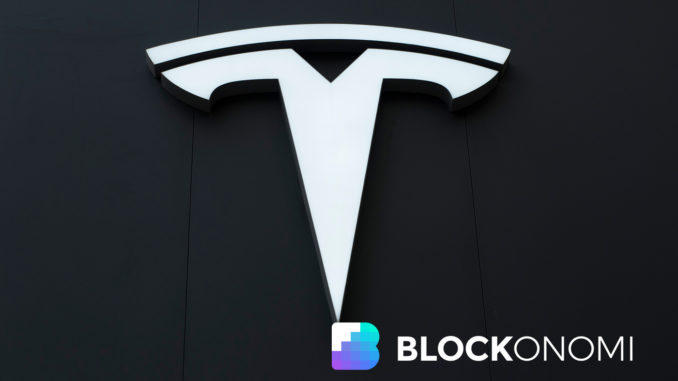
Elon Musk, Tesla CEO, announced via a tweet that the company was now accepting Bitcoin as a payment method for its products, doubling down on the investment of $1.5 billion back in February of 2020.
Musk has been a vocal supporter of cryptocurrency in the past, usually driving spikes in BTC and DOGE valuations after tweeting positively about them, and the company he directs started one of the biggest bull runs in recent months when its Security and Exchange (SEC) commission filing went public.
You can now buy a Tesla with Bitcoin
— Elon Musk (@elonmusk) March 24, 2021
The SEC filing stated Tesla’s interest in accepting BTC ad a form of payment, “in the near future”, as well as the company’s use of cryptocurrency in the form of an, “alternative reserve assets to provide flexibility in investments.”
Now, the company’s CEO and founder has announced the much-anticipated news while also adding that Tesla is operating Bitcoin nodes directly and using, “internal & open-source software.”
The tweet also stated that Tesla will not be converting Bitcoin to fiat but retaining it as cryptocurrency.
Tesla’s decision to keep the BTC received as payment for its products and running its own nodes is a testament to its trust in the cryptocurrency’s recent success, which the market reflected as BTC’s value increased by about 3% after Musk’s tweet.
Goldman Sachs Applies for Bitcoin Exchange-traded Fund
Goldman Sachs, one of the world’s biggest financial institutions, file an application with the Securities and Exchange Commission (SEC) on March 19th to launch a new investment product designed to grant its clients access to BTC investment.
This investment would not be direct, as the filing states that,
“The ETF may have exposure to cryptocurrency, such as bitcoin, indirectly through an investment in a grantor trust. The ETF’s exposure to cryptocurrency may change over time and, accordingly, such exposure may not always be represented in the ETF’s portfolio”.
The filing also suggests that the ETF could make use of other cryptocurrencies in the future as long as they “represent its highest-conviction investment ideas within the theme of disruptive innovation”.
While Bitcoin ETFs are not currently available in the United States for investors to take advantage of, they have grown in popularity around the world.
For those looking to profit from the growing cryptocurrency market, countries like Canada and Brazil leading the way.
Goldman Sachs’s decision to take a more active role in cryptocurrency investment is just the latest decision from major financial institutions that had shared their skepticism in the past.
The recent bull run experienced by the crypto market has forced such organizations to reconsider their position.
Concerns Over BTC Mining’s Power Consumption Are on The Rise
As Bitcoin’s value has continued to increase over the past months, more mainstream media outlets have started covering the leading cryptocurrency from every angle imaginable.
In recent weeks, the spotlight has been on the energy consumption of the thousands of miners keeping the network running.
As Bitcoin still operates by using a Proof-of-work consensus algorithm, with no apparent plans to change it shortly, it requires miners to make use of great amounts of computational power that requires great quantities of energy and hardware to maintain their competitive edge.
Amazing Use of Power
A recent report by the BBC shares data from Cambridge University suggesting that Bitcoin mining requires more energy globally than the entirety of Argentina, one of the biggest Latin American economies.
The data may sound alarming due to the potential it has to force governments to actively monitor and regulate Bitcoin mining.
Cryptocurrency defenders have pointed out that countries like China and Iceland, some of the countries with the most activity in crypto mining, source most of their energy from renewable sources like geothermal and hydroelectric generation.
With Bitcoin defenders and skeptics arguing about the real carbon footprint of cryptocurrency mining, changes to energy-efficient consensus algorithms like proof-of-stake and proof-of-ownership are likely to become increasingly popular.
Especially once Ethereum 2.0 is deployed and other projects decide to follow.
1,543





 Bitcoin
Bitcoin  Ethereum
Ethereum  Tether
Tether  XRP
XRP  USDC
USDC  Solana
Solana  TRON
TRON  JUSD
JUSD  Dogecoin
Dogecoin
Be the first to comment